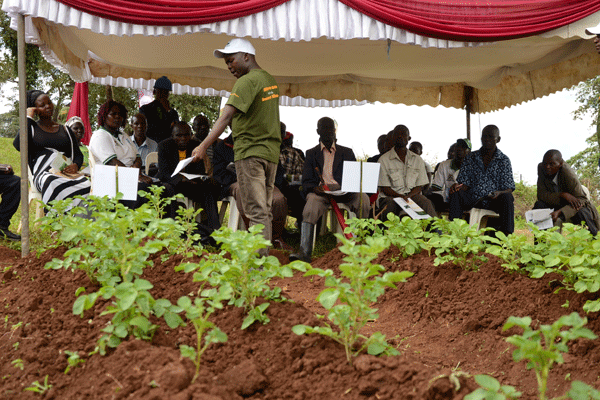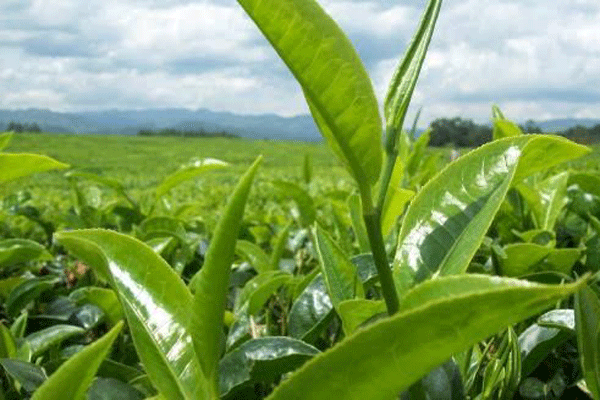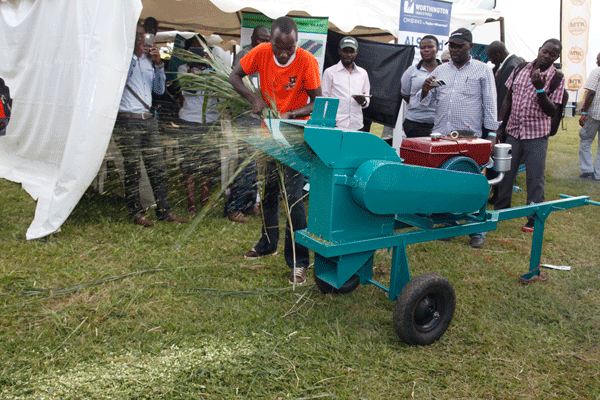Prime
Challenges to contend with in the garden today

An agronomist explains to farmers how to plant vegetables. PHOTO/GEORGE KATONGOLE
What you need to know:
- Prices of fertilisers and other farm inputs have sharply risen.
Nobody is always certain about what will happen in the future. Farmers cannot therefore always be sure when there will be calamities such as a long drought, a devastating rainstorm, a sudden rise in the cost of inputs or a surge in crop and animal diseases.
Perhaps nobody had any idea, a few years ago, that a new disease, Covid-19, was around the corner and that it would have such a destructive effect on farming nearly all over the world. Such shocks are bound to take place time and again, which is why we must learn to live with them if we are going to eradicate hunger and malnutrition by 2030.
Today poultry farmers in Uganda are struggling to find a market for their eggs. Yet the prices of poultry feeds have shot through the roof! Neighbouring countries that used to buy our eggs are no longer buying them reportedly because they have enough eggs themselves.
The prices of fertilisers and other farm inputs have sharply risen in the recent months. Yet successful crop production in anchored on fertiliser usage.
We have just come out of a long drought that nearly destroyed the Robusta coffee crop and complicated the production of other crops such as beans and maize.
Apart from rain shortage we already had pests that are steadily wiping out staples such as cassava and banana. One way to overcome such challenges is to try out drought tolerant and disease resistant seed varieties.
In its recent report, titled, “Making Agrifood systems more resilient,” the Food and Agricultural Organisation (FAO) makes some recommendations about what countries can do to recover from unexpected shocks and stresses.
It emphasises diversification – of input sources, production, markets, and supply chains – since diversity creates multiple pathways for absorbing shocks.
If Uganda had several different sources of fertilisers the prices could not have risen so high.
The report also recommends the formation and strengthening of cooperatives. It is easier to confront shocks in groups of farmers other than individuals.
It further talks about improving storage of farm products. If countries can safely store farm products they can make them available whenever scarcity arises.




